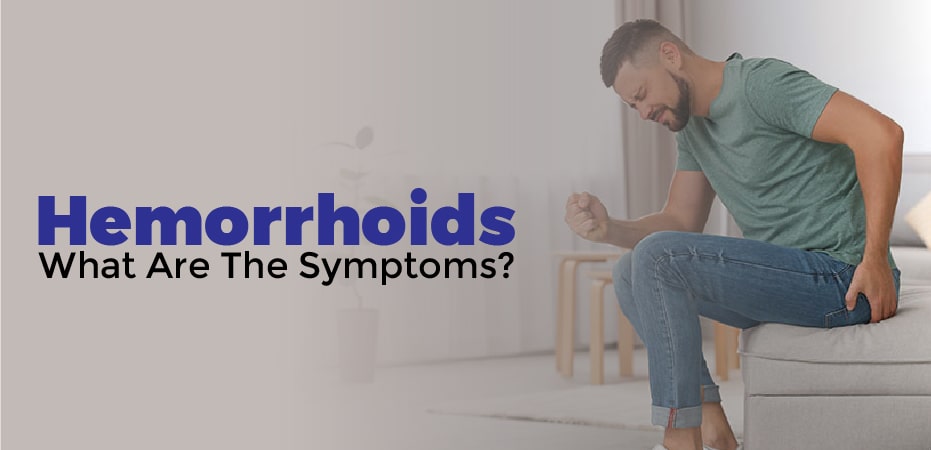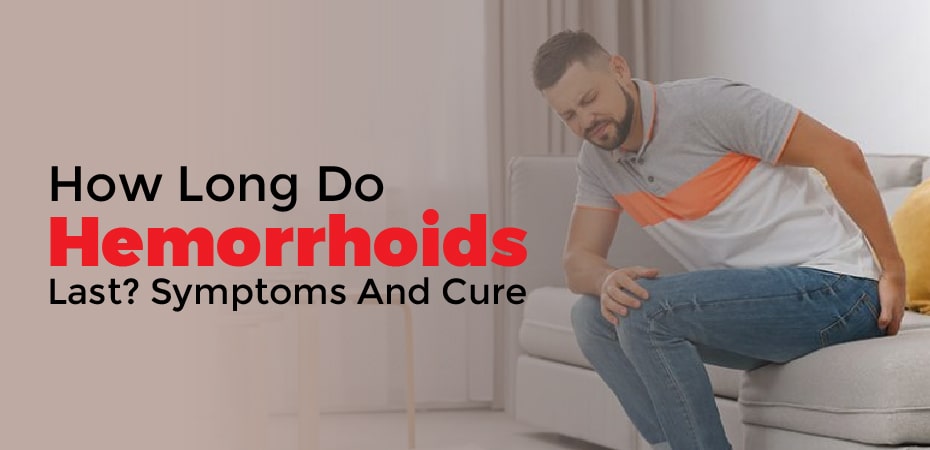How Long Do Hemorrhoids Last? – Symptoms And Cure
A hemorrhoid is a swollen vein under your anus or in your lower rectum. Internal or external hemorrhoids are possible. In the rectum, internal hemorrhoids occur. The external hemorrhoids are outside of the anal space. In this article, we shall discuss how long do hemorrhoids last and what are the symptoms, and how to cure them.
There are times when hemorrhoids hurt or are itchy. In addition, hemorrhoids can bleed when one is bowling.
Blood vessel hemorrhoids are very common. Approximately 75 percent of patients who suffer from the trusted Source of people will have hemorrhoids at some point. Hemorrhoids are more common in people between the ages of 45 and 65.
Table of Contents
How Long Do External Hemorrhoids Last?
In small hemorrhoids, healing may take place without treatment. Some dietary and lifestyle changes may be required.
In some cases, internal hemorrhoids grow so large that they protrude from the anus. These are called prolapsed hemorrhoids. Healing prolapsed hemorrhoids may take longer and doctors need to administer treatment.
There is a possibility that pregnant women will suffer from hemorrhoids. In your third trimester, the increased pressure in your abdomen may increase the size of the veins in your rectum and anus.
In addition, the hormones associated with pregnancy might cause your veins to swell. The pain from hemorrhoids during pregnancy may last until following delivery.

Hemorrhoids: What Are The Symptoms?
They usually do not have obvious symptoms. There is sometimes bleeding caused by a bowel movement irritating hemorrhoids.
In the event of an internal hemorrhoid being pushed outside of the anal opening, you will most likely experience bleeding during bowel movements as well as symptoms that include:
- Itching
- swelling
- burning
- pain
- a lump
- discomfort
It’s these same symptoms you experience if you have external hemorrhoids.
How Long Do Internal Hemorrhoids Last?
Afterward, some people may feel better, but others may continue to feel pain until it is surgically removed. Taking into account both types of hemorrhoids, internal and external, is necessary. A month is usually enough time for hemorrhoids to go away with proper treatment.
How Long Do Thrombosed External Hemorrhoids Last?
Thrombosed hemorrhoids develop under the skin around the anus, causing discomfort with the presence of a blood clot. If left untreated, thrombosed hemorrhoids may begin to improve within seven to ten days and disappear within two to three weeks.
Are There Any Relief Measures You Can Take?
You can heal hemorrhoids faster by changing your lifestyle. During bowel movements, straining is a cause of hemorrhoids. It is beneficial to increase the fiber in your diet, such as vegetables, fruits, and whole grains, so that your stool can pass more easily.
To relieve constipation and reduce straining during bowel movements, you should also drink lots of water.
Symptoms may also be relieved by:
- Try to minimize your time spent on the toilet.
- Go as soon as you feel the urge to relieve yourself.
- If you’re having bowel movements, put your feet on a stool to change your rectum’s position.
- During pregnancy, sleep on your side. Your anus will be relieved of some of the pressure.
- Ask your doctor if you should take a stool softener or fiber supplements, such as psyllium (Metamucil) or methylcellulose (Citrucel). Adding a teaspoon of mineral oil to food can also soften stools.
- Cleanse the anal area after eating. Use moist wipes to clean the anus area after you pass bowel movements.
- If you would like to bathe the anal area, use a sitz bath or sit in a warm tub for a few minutes.
For pain relief, you could also try over-the-counter (OTC) topical medications, such as phenylephrine hemorrhoid gel (Preparation H). A hemorrhoid swelling and inflammation can be treated with these products.
The use of steroids may cause long-term skin thinning around the anus if long-term use is continued. Taking OTC medications isn’t helping, so talk with your doctor to see if you need further treatment.
Prevention tips
By altering your diet and daily routine, you can prevent hemorrhoids from returning. In addition to relieving hemorrhoids symptoms, there are also ways to prevent future flare-ups. These tips include:
Make sure you eat enough fiber-rich foods and drink enough fluids to keep your stools soft and prevent straining during your bowel movements. Stool softeners can also be prescribed by your doctor.
You will benefit from regular exercise, which will keep you from having irregular bowel movements. It is important to lose weight to relieve pressure on veins in your rectum and anus if you are overweight.
